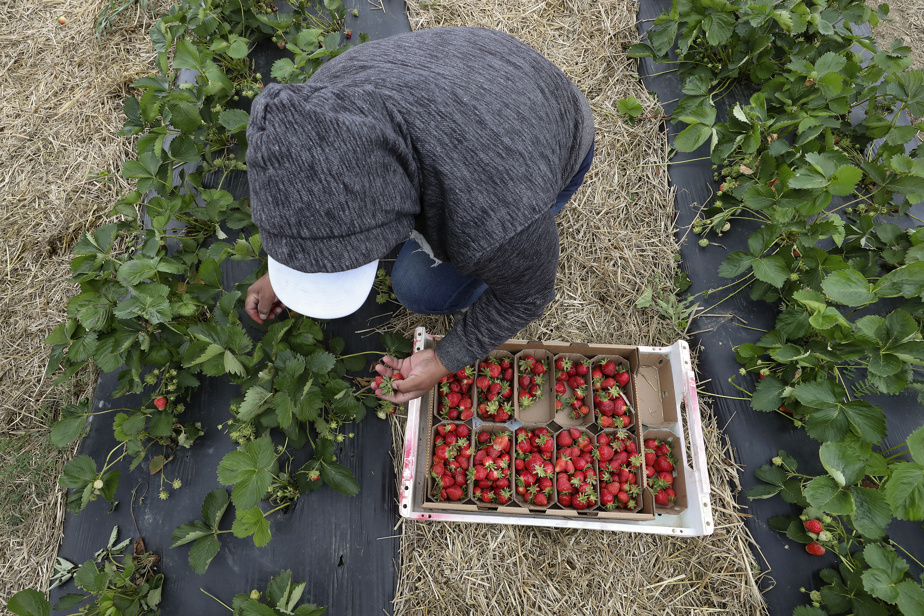A workers’ rights group is turning to the courts to try to end the closed permit system for foreign workers. During a hearing aimed at authorizing a class action against the federal government on Wednesday, she demanded compensation for all temporary foreign workers who have not had the right to change employers in Canada since 1982.
“Working in Canada with a closed work permit was like living in an invisible prison,” said Byron Acevedo, in front of the Montreal courthouse. This former Guatemalan agricultural worker is the representative of the group in the request for authorization to bring a class action heard in Superior Court.
The plaintiff, the Association for the Rights of Household and Farm Workers (DTMF), denounces the system of temporary work permits put in place by the Government of Canada, which forces them to work for an “employer specific “.
This regulation opens the door to abuse and leaves migrant workers vulnerable in front of their employers, fearing being deported to their country of origin if they decide to file a complaint, says the association.
According to the documents submitted to the court, the plaintiff believes that these permits violate several provisions of the Canadian Charter of Rights and Freedoms, including the right to life, liberty and security of the person.
The association demands that Ottawa pay damages to all migrant workers who have worked in Canada since 1982, i.e. since the adoption of the Charter, which represents more than two million people, according to Eugénie Depatie-Pelletier, president. of the DTMF Board of Directors. She is also seeking punitive damages.
The Government of Canada maintains that the group determined by the plaintiffs is “too broad”, since it includes all workers who have worked in Canada since 1982, regardless of the type of job they held. It is impossible to prove that the members of the group suffered common damage, argued Me Émilie Tremblay, who represents the Attorney General of Canada.
“There are no allegations of commonalities between the work experiences of all temporary foreign workers,” she said during the hearing.
Byron Acevedo worked in the agricultural sector from 2014 to 2022.
“Before coming [to Canada], I believed that I would work in a country where my rights would be respected and where I would be treated in the same way as a Canadian worker, but my reality has been totally different,” he said. he says.
During his stays, he says he suffered psychological harassment and threats of deportation from his employers. He injured his back in 2015 while trying to catch a turkey. After waiting several hours for his employer to agree to transport him to the emergency room, he received sick leave from the doctor.
Mr. Acevedo’s sick leave was renewed several times and his employer “accused him of faking, lying and taking advantage of the situation to not work” and even threatened to have him expelled as soon as he did so. could be able.
He then worked on a dairy farm where he was “frequently [hit] by animals.”
From 2020 to 2022 he worked for another dairy company. Mr. Acevedo described poor living conditions, including overcrowding and lack of privacy in employer-provided housing.




